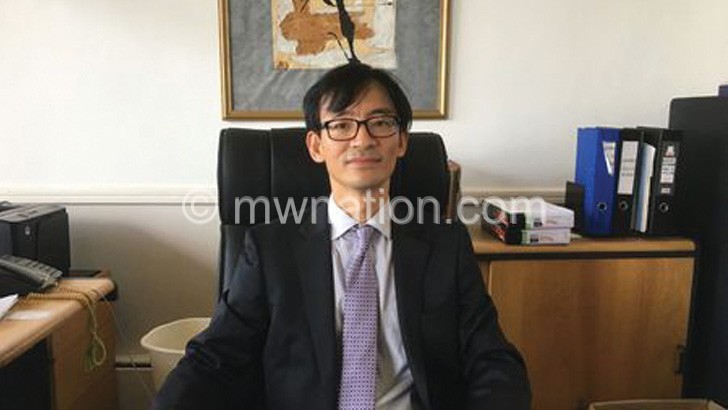Malawi gets IMF nod
The International Monetary Fund (IMF) has completed its assessment of Malawi’s performance on its Extended Credit Facility (ECF), giving a positive rating that may see some development partners releasing direct budget support.
In an e-mailed response to a questionnaire yesterday, IMF representative in Malawi Jack Ree said as things stand now, the possibility of donors bouncing back cannot be ruled out.
However, he cautioned that the donors’ response will squarely depend on the authorities ability to build on the gains achieved during the ECF programme, especially in the area of public finance management.

Said Ree: “Fixing the plumbing in the management of public money will help in reducing donors’ resistance to budget support. However, the repair is still a work in progress.
“We first need to make sure that the fixed pipes do not break again. We then need to shift the repair works to more complicated sources of leaks, for example the management of procurement.”
He added that Malawi also needs to keep freeing up its fiscal space to reduce aid dependency.
“One low hanging fruit is interest payments on public debt which takes up an alarming 16 percent of the budget. The cost will be reduced drastically as we continue to bring inflation down, which will make interest rates to follow suit.
“Stronger accountability framework for public investment is another one, which will ensure that every tambala spent brings home the intended value,” said Ree whose institution has approved disbursement of $26.9 million (about K19 billion) to Malawi under ECF to stabilise foreign exchange rates.
Incessed by revelations of mismanagement of public funds at Capital Hill, widely known as Cashgate in 2013, Malawi’s key donors—who contributed about 40 percent to the recurrent budget—withdrew their direct budgetary support worth $150 million, leaving behind a huge fiscal gap.
To date, the donors, some of whom have described the Malawi Government Account Number One as “a leaking budget”, have since been assisting Malawi through off-budget support mechanism.
Ree observed that following the IMF executive board’s endorsement, both the private sector and the donors will feel more assured that the Malawi economy is on the right track and on the verge of coming out of the woods.
He said: “They will feel more confident about the authorities’ commitments for continued reforms aimed at stopping the bleeding and bringing the economy back on its feet. They will more likely sense a window of opportunity to invest in the country’s potential, which is becoming increasingly clear.”
Reacting to the development, Secretary to the Treasury Ben Botolo said government is pleased with the outcome of the programme, which has given confidence to development partners and investors in the economy.
He said government is currently focusing on balancing the macroeconomic stability and public finance management reforms, hinting that it is considering negotiating another programme going forward.
Said Botolo: “This programme has been concluded and we are happy with its conclusion. We will negotiate another one, but this will depend on the way we move and look at the economic realities.
“Between July and September, we will have the Article IV Consultations with the IMF where we will look at several issues and come up with a programme.”
While welcoming the conclusion of the programme with a positive rating, Ben Kaluwa, an economics professor at the University of Malawi’s (Unima) Chancellor College, in an interview yesterday cautioned against the overdependence on economic advice from international bodies.
He said: “We are saying going forward, we should strive to work on our own. We know of local people who are making that much in the country. We need to cease inviting international bodies to handle our own economy.”
The ECF arrangement for Malawi, worth $143.5 million, was approved on July 23 2012. In June last year, the IMF board approved the release of $47.8 million to strengthen the country’s response to the El Niño-induced drought.
The ECF programme is aimed at achieving and maintaining macroeconomic stability and implementation of policies and structural reforms to spur growth, diversify the economy and reduce poverty.
Read about economists’ views on the IMF decision in Business News section of this edition on Page 13. n





